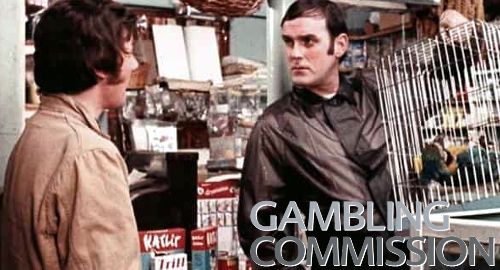 UK gamblers aren’t griping about unauthorized online gambling sites during the pandemic, while a new survey shows many problem gamblers have yet to access available treatment programs.
UK gamblers aren’t griping about unauthorized online gambling sites during the pandemic, while a new survey shows many problem gamblers have yet to access available treatment programs.
On Tuesday, the UK Gambling Commission (UKGC) announced that there’d been no uptick in complaints during the COVID-19 pandemic lockdown regarding gambling sites lacking a local license. There were 12 complaints about nine sites in March, and 11 complaints about 11 sites in April.
The regulator said the number of complaints has been stable over the past year, suggesting (a) there’s been no surge in traffic to unauthorized sites following the regulator’s increased restrictions, or (b) those internationally licensed operators haven’t been ill-treating their UK customers.
The UKGC recently released data showing there’d been no significant increase in either gambling activity or problem gambling behavior since the pandemic lockdown began in March. But results of a new survey by the industry-funded problem gambling charity GambleAware suggests that problem gamblers aren’t always making use of the mitigation measures at their disposal.
The survey, which was conducted by YouGov on behalf of GambleAware, queried 12,161 UK adults in late-2019 regarding their gambling activity and if they’d ever sought help to address gambling activity they deemed problematic.
The YouGov survey found 2.7% of respondents classified as problem gamblers under the Problem Gambling Severity Index (PGSI), although Professor Patrick Sturgis from the London School of Economics said the “true rate” was likely closer to the 0.7% estimate of the National Health Service’s Combined Health Surveys.
The headline figure from the report was the 46% of problem gamblers who’d yet to make use of the treatment and support services available to them. The most common justifications for avoiding these programs were individuals not considering their gambling to be a problem, not viewing treatment as relevant or suitable, not wishing to give up the ‘positive impacts’ of gambling, and the perceived stigma of seeking treatment.
The elements that encouraged gamblers to seek help included ease of access, having a partner or family member talk about it, confidence in confidentiality, no financial barrier to admission and a doctor’s recommendation.
GambleAware CEO Marc Etches said the research showed “a clear need to further strengthen and improve the existing treatment and support on offer, to develop routes into treatment and to reduce barriers to accessing help.”
Dr. Sokratis Dinos of the National Center for Social Research said the unwillingness of many problem gamblers to admit they have a problem indicated the need “to develop education programmes and public messaging about the way gambling disorder is perceived.”